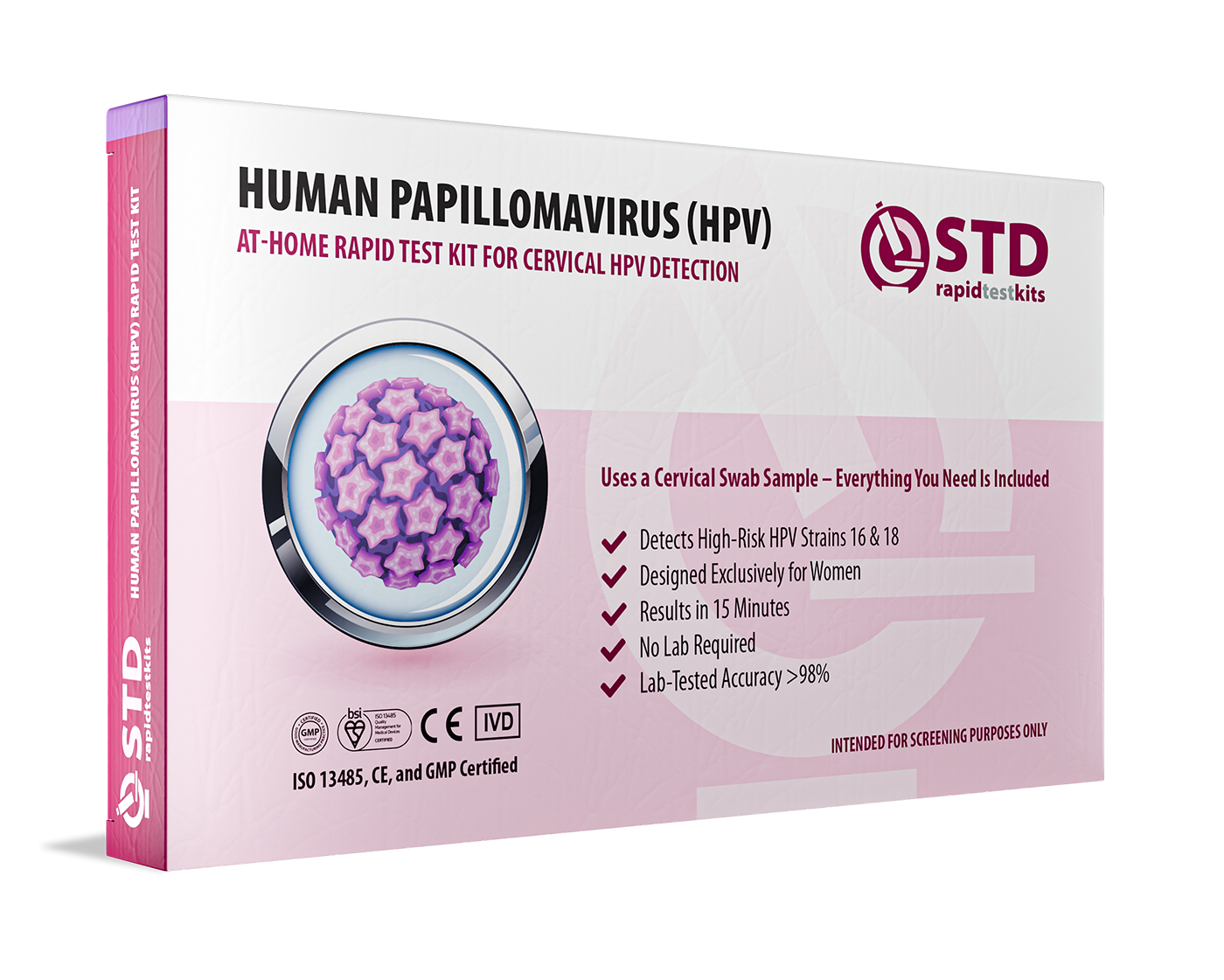Quick Answer: Yes, you can get STDs from foreplay. Infections like Herpes, HPV, Gonorrhea, Syphilis, and even Chlamydia can spread through oral sex, skin-to-skin contact, and genital touching, even without penetration.
“We Didn’t Have Sex”, Why That Doesn’t Mean You’re Safe
Many people associate STDs with penetrative sex only. But viruses and bacteria don’t need full-on intercourse to do their damage. In fact, some of the most common STDs are transmitted through touch, saliva, or mucous membranes.
- Herpes: Can spread through kissing, oral sex, or skin contact during genital rubbing
- HPV: Transmits through genital skin-to-skin contact, no penetration required
- Gonorrhea: Can infect the throat, eyes, and genitals during oral or manual sex
- Syphilis: Transmits through tiny sores during kissing or oral/genital play
“He said we didn’t need protection, we weren’t ‘having sex.’ A week later, I had symptoms I’d never seen before.”, Riley, 22
Just because you didn’t go all the way doesn’t mean the risk stayed home. STDs aren’t just about penetration. They’re about exposure.

People are also reading: The Alarming Rise of HPV and Herpes Among Young Koreans
Oral Sex: Way More Risky Than You Think
Let’s talk about that blowjob. Or the time your partner went down on you without asking about testing. It felt “safe”, because it wasn’t penetrative. But oral sex is one of the most overlooked STD transmission routes.
- HSV-1 (oral herpes): Can become genital herpes if transmitted during oral sex
- Gonorrhea: Infects the throat (called pharyngeal gonorrhea), often silently
- HPV: Can cause oral or throat cancers, especially from repeated exposure
- Syphilis: Small, painless sores in the mouth or genitals may go unnoticed
Even if the giver has no visible sores or symptoms, asymptomatic shedding makes it possible for them to transmit infections. Condoms and dental dams lower the risk, but let’s be real, how often are they actually used for oral?
If you’ve had oral sex, even once, you’re eligible for testing.
Skin-to-Skin Contact: The STD Route No One Mentions
Let’s talk about grinding. Dry humping. Rubbing up against each other with no clothes, maybe still wearing underwear. It feels “safe” because there’s no penetration. But several STDs spread through simple skin contact.
Herpes, HPV, and Syphilis don’t care about your technical definition of sex. They live on the skin. They shed without symptoms. And they love mucous membranes, like the labia, shaft, inner thighs, anus, and mouth.
Genital-to-genital rubbing can transmit:
- HSV-2: Even without visible sores
- HPV: Even without ejaculation or penetration
- Syphilis: Through contact with a painless chancre (sore)
Even hand-genital contact can pose a risk if someone touches an infected area and then touches another person’s genitals. The risk is lower, but not zero.
“I never even had penetrative sex. Just grinding in my underwear. I still got herpes.”, Nick, 20
Education = power. Foreplay isn’t risk-free. It’s risk-managed, with protection, testing, and honest conversations.
Sex Toys: Shared Fun, Shared Risk
Sex toys aren’t inherently risky, but sharing them without cleaning properly can absolutely spread STDs. That’s especially true for toys used in the vagina, anus, or mouth.
- Chlamydia and Gonorrhea: Can live on toys and infect multiple users
- Hepatitis B: Spread through contact with blood or fluids on insertive toys
- HPV and HSV: Survive on surfaces for short periods, enough to infect
If you’re sharing toys:
- Use condoms on them, and change between partners or holes
- Clean with hot water and antibacterial soap after every use
- Invest in non-porous materials (silicone, glass, steel) for easier cleaning
Mutual pleasure doesn’t have to come with shared infections. Protect yourself before you play.
Check Your STD Status in Minutes
Test at Home with RemediumPapillomavirus (HPV) Test

 For Women
For Women Results in Minutes
Results in Minutes No Lab Needed
No Lab Needed Private & Discreet
Private & DiscreetOrder Now $33.99 $49.00
When the First Symptom Shows Up *After* the First Time
You skipped penetration. But a week or two later, there it is. A bump. An itch. A sore throat. A weird discharge. You start to wonder if it’s your detergent. A yeast infection. Stress. But deep down, you know something’s not right.
Many people first notice STD symptoms after foreplay, not sex. That’s because the most common STDs don’t need “going all the way” to get in.
- Herpes: May start as tingling or stinging near the genitals or lips
- HPV: Genital warts can take weeks to appear, or stay hidden entirely
- Gonorrhea/Chlamydia: Can infect the throat and show up as a persistent sore or cough
- Syphilis: May cause a small, painless sore that gets missed entirely
“I hadn’t even had penetrative sex yet. But my partner had cold sores, and no one ever told me that mattered.”, Emily, 21
Symptoms might be subtle. Or they might not show up at all. That’s why testing isn’t just for people who’ve “gone all the way.” It’s for anyone who’s had any kind of sexual contact.
Why You Should Test Even If You Think You’re a Virgin
This isn’t about labels. It’s about bodies. About biology. About real-life risk.
If you’ve had:
- Oral sex (giving or receiving)
- Genital-to-genital contact (with or without clothes)
- Kissing with a partner who’s had cold sores
- Shared sex toys without cleaning in between
, then you’ve been exposed to possible STD transmission routes. It doesn’t mean you’re infected. It means you deserve to know.
Testing isn’t an accusation. It’s a form of care, for yourself and anyone you connect with.
Asymptomatic Spread: The STD You Don’t See Coming
Let’s be blunt: you can catch an STD from someone who “looks clean”. Most STDs don’t announce themselves with obvious sores or symptoms, especially during foreplay. That means your partner could be shedding the virus while feeling 100% healthy.
Asymptomatic shedding is how herpes spreads most of the time. HPV can be silent for months or years. Gonorrhea and chlamydia may not cause any symptoms in the throat or genitals. And syphilis can masquerade as a pimple or get missed entirely.
So no, “they looked fine” doesn’t cut it. The only way to truly know is to test.

People are also reading: What It Feels Like to Get Tested for HIV for the First Time
“We Only Did It Once”, Still a Risk
One time. One moment. One quick hookup. No symptoms. No penetration. Still enough to spread something.
STDs don’t need a second chance to infect you. Just like a single cold sore kiss can lead to oral herpes, one brief oral or skin-to-skin encounter can leave a lasting mark. The risk may be lower than repeated exposure, but it’s not zero.
“It was just that one night. We didn’t even sleep together. But weeks later, I tested positive for HSV-2.”, Jay, 29
If you’ve ever had any kind of intimate contact, even once, it’s worth getting tested, especially if symptoms pop up later.
Why STD Education Needs a Major Update
Sex ed rarely teaches what really matters: how STDs spread during real-world encounters. Most of us are taught that condoms = safe, and sex = penis-in-vagina. But what about everything else?
There’s no discussion of:
- STDs spreading from oral sex
- Risk from genital rubbing or dry humping
- Shared toys and lube contamination
- Herpes or HPV passed without any “sex” at all
It’s time to fill in the gaps. Knowing what’s actually risky doesn’t ruin sex. It makes it safer, more consensual, and more respectful.
Who’s Most at Risk During Foreplay?
While anyone can get an STD from foreplay, some people are more vulnerable, especially if they rely on myths instead of facts.
- Young people: First-timers often skip protection during oral or touching
- Queer couples: Often left out of traditional sex ed, leading to gaps in safety knowledge
- People with vaginas: More susceptible to infections via mucous membranes
- Partners who don’t disclose cold sores or past exposures
Foreplay might feel “innocent,” but ignorance isn’t protection. Education is.
Check Your STD Status in Minutes
Test at Home with Remedium7-in-1 STD Test Kit

 For Men & Women
For Men & Women Results in Minutes
Results in Minutes No Lab Needed
No Lab Needed Private & Discreet
Private & DiscreetOrder Now $129.00 $343.00
For all 7 tests
The Case for Foreplay-Friendly Protection
Condoms aren’t just for penetration. And they’re not your only option. You can absolutely protect yourself during foreplay, you just have to prepare differently.
Try this:
- Use dental dams: For oral-vaginal or oral-anal play
- Gloves or finger cots: During manual sex (especially with cuts or long nails)
- Condoms on toys: Especially when sharing between partners or switching holes
- Alcohol-free wipes: To clean surfaces between partners
Protection doesn’t have to kill the mood, it just needs to be part of it. Safety = sexier when it’s proactive.
Testing After Foreplay: What to Ask For
Most people think STD tests are for “real sex” only. But if you’ve had foreplay, it’s smart to screen anyway. Ask your provider, or order online, and make sure your test includes:
- Herpes (HSV-1 and HSV-2): Blood test or swab if symptoms exist
- Gonorrhea/Chlamydia: Throat swab if oral sex was involved
- Syphilis: Blood test if exposed to oral/genital contact
- HPV: Available for people with cervixes via Pap or HPV DNA testing

People are also reading: I Got Herpes and I Never Even Had Sex
FAQs
1. Can you get an STD from kissing?
Yes. Herpes (HSV-1) and syphilis can be transmitted through kissing, especially if cold sores or mouth ulcers are present.
2. Is oral sex really that risky?
It can be. Oral sex can transmit herpes, gonorrhea, syphilis, chlamydia, and even HPV. Many of these infections can live in the throat without symptoms.
3. Can dry humping cause STDs?
If there’s skin-to-skin contact or bodily fluid exchange, yes. Herpes and HPV are the most likely to spread this way.
4. Do condoms protect against STDs during foreplay?
Not always. Condoms reduce risk but don’t fully protect against herpes, HPV, or syphilis because they can live on uncovered skin.
5. Can sex toys spread STDs?
Yes. If not cleaned or covered properly, sex toys can transfer chlamydia, gonorrhea, herpes, and more between users.
6. Is it possible to get an STD from someone who looks clean?
Absolutely. Many people carry STDs with no visible symptoms. Asymptomatic shedding is common.
7. What’s the safest way to enjoy foreplay?
Use barriers (dental dams, condoms), wash toys, communicate, and get tested regularly. Pleasure and safety can go hand-in-hand.
8. Should I get tested after oral or manual sex?
If there was skin-to-skin contact, shared fluids, or oral contact, yes. Testing is the only way to know for sure.
9. What if my partner has cold sores?
Avoid kissing and oral contact until healed. Cold sores are herpes. They can transmit HSV-1 to the genitals.
10. s there an at-home test that covers all of this?
Yes. This combo test kit screens for the most common STDs discreetly, even after foreplay-only encounters.
You Deserve Real Protection, Not Just Assumptions
Sex education failed a lot of us. It told us that STDs only come from sex. It skipped oral, touching, toys, grinding, kissing. But now you know better. And knowing better means you can protect yourself without killing the mood or the moment.
Foreplay isn’t risk-free, but it can be risk-aware. Testing after “just fooling around” doesn’t make you paranoid. It makes you powerful.
Don’t guess. Don’t wait. Test yourself today, and take your pleasure seriously.
Sources
1. Medical News Today – “Can you get an STD from manual stimulation?”
2. Healthline – “You Can Contract an STI Without Having Penetrative Sex”
3. Healthline – “Can Dry Humping (Frottage) Lead to HIV or Other STIs?”
4. NHS – “Sex activities and risk” (STI risks across different acts)










